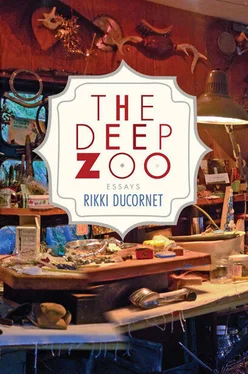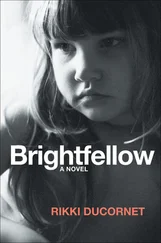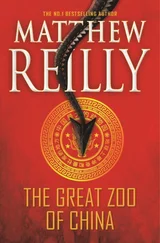In his Poetics of Space, Bachelard writes:
We have the impression that by staying in the motionlessness of its shell, the creature is preparing temporal explosions, not to say whirlwinds of being.
And in The Poetics of Reverie:
The passionate being prepares his explosions and his exploits in. . solitude.
The shell, the yellow tiger, the crowing cock, the moon — these are the potencies in which time is compressed in the form of memories. To write is to engage a waking dream, to, in solitude, prepare a whirlwind. Says Bachelard:
Daydreams illuminate the synthesis of immemorial and recollected. In this remote region, memory and imagination remain associated, each one working for their mutual deepening.
For Bachelard, Time has but one reality: that of the instant. The instant is our solitude stripped bare, stripped down to its essential potencies — its Deep Zoo.

The shapes of time are the prey we want to capture.
— GEORGE KUBLER, The Shape of Time
When I was a child, I came upon the dead body of a red fox in the woods; it was early summer, and the fox’s belly was burning brightly with yellow bees. A species of animate calligraphy, the bees rose and fell in a swarm that revealed, then concealed, the corpse. Yellow and black they tigered it, and they glamorized it too — transforming what otherwise might have seemed horrible into a thing of rare beauty. It is no accident that my first novel opens with the death of a creature in a wood.
If I have, throughout this essay, dwelled on the potencies of what I’ve been calling the Deep Zoo; it is because it is the work of the writer to move beyond the simple definitions or descriptions of things — which is of limited interest after all — and to bring a dream to life through the alchemy of language; to move from the street — the place of received ideas — into the forest — the place of the unknown.
But the Deep Zoo’s attraction is not sufficient. We must take care that our books do not resemble those seventeenth-century wonder-rooms or nineteenth-century parlors, with their meaningless jumbles of stuffed bears, kayaks, giant lobsters, and assorted stools. In other words, just as the museum of natural history has contributed to, perhaps enabled, our practical knowledge of the phenomenal world — and do not forget that the development of the museum coincides with the exclusion of Christian orthodoxy from the process of scientific inquiry — so must the books we write be free of those restraints that impede aesthetic invention; so must they be enabled by the rigors of intellectual coherence. Again, if we are to be quickened by the prime qualities of the Deep Zoo, we cannot allow our books to be determined by excess or arbitrariness. Ideas and language deserve our chronic, acute attention. After all, a book is above all a place to think, and the lightness of thoughtfulness our way of approaching the truth.
It is our capacity for moral understanding that enables us to interpret the world and to act thoughtfully and with autonomy. As psychoanalysis demonstrates, knowledge of ourselves and the world allows us to heal, to transcend the moral darkness that suffocates and blinds us. The process of writing a book is similar as it reveals to the writer what is hidden within her: writing is a reading of the self and of the world. It is a process of knowledge. That is why the lost roads and uncharted territories of the world’s maze deserve our interest. If a book is a place to think, it is a pragmatic place, a place of experiment and discovery, a battleground (Calvino’s word) where the orthodoxies — religious, political, neurotic — that interfere with clairvoyance are dismantled and replaced by a new order. In other words, to write in the light of childhood’s burning alcohol, with the irresistible ink of tigers and the cautious uncaging of our own Deep Zoo, we need to be attentive and fearless — above all very curious — and all at the same time.
In Maria Dermoût’s Ten Thousand Things , a living sea snail in a box guards memories in the shapes of small, disparate objects. When the snail dies, it is replaced — a spiritual manipulation that is also an act of magic. Resurgent, the memories continue to inform the world with a playful, essential, and erotic mystery. Writes Borges:
In my soul the afternoon grows wider and I reflect.
— Dream Tigers
Books of Natural and Unnatural Nature
SEED — I
Once the world was seeded with sympathies, a Book of Nature informing everything from the dreams of the living to the wistful expectations of the dreamless dead. Like all great books, Nature’s Book was cherished for its risks, its contrarieties, wonders, and mutabilities, and for the sanctuary it offered, just as it imposed a perilous journey. If the laws of change, set in motion “from the earliest of beginnings” 1were embodied within each one of us, so were the seeds of myth. When Ovid opens his Metamorphoses with the words, “My purpose is to tell of bodies which have been transformed into shapes of a different kind,” 2it could be Darwin speaking. And when the Rig Veda challenges, “I ask you about the uttermost ends of the earth; I ask you where is the navel of the earth; I ask you about the seed of the stallion; I ask you, where is the highest place of speech,” 3it poses questions still waiting to be answered.
Ovid describes the birth of a universe that is both ordered and boundless:
Stars and divine forms occupy the heavens, the earth harbors wild beasts and the yielding air welcomes the birds. When man appears, he, and of (his) own accord, maintains good faith and does what is right [how times change. .]; without compulsion [without compulsion!] the earth produces things spontaneously. 4[In Ovid’s world, Monsanto, the unimaginable, was not yet imagined.]
What if. . what if just as the traces of our earlier forms persist, encoded in our genes, a golden age persists deep within the mind, the human mind that produces a multitude of things spontaneously? And, like the “waters desirous of truth, never at any time ceases?” 5
Years ago, a gift of a magic mushroom revealed to me, metaphorically at least, the origins of everything. But before that could happen, I needed to confront an infinitesimally small blue baboon (whom I later recognized as the associate of Egypt’s Thoth — the one who guards Death’s Portal, and who authored certain chapters of the Book of the Dead ). He was exacting, malicious, and incontournable. But because I stood my ground he vanished; no trace of his acute gravity, nor his malevolence, haunted my first and last visit to. . I have no idea where! After all, there was no there there. And yet I returned from virtuality to here — which is also a dubious place, its sands very quick, its Amazons shrinking, its gleaming fish and yielding air sorely compromised — with a marvelous vision of a universe seeded with an infinite capacity to name things —and so begin to understand them with the mind.
This is what I saw: every atom of air was comprised of a Hindu god balancing in each of many palms and fists, a seminal thing. An infinity of hands was poised to seed the universe with meaning. The Blue Baboon had yielded his finite holdings to boundlessness. Then, in an instant, all this dissolved and was replaced by letters of the Hebrew alphabet. Every atom of air was now a letter inked in black. They had been hanging there forever, waiting for a breath, an intention, a receptive mind to catch fire.
(Very recently, when I saw Karl Sims’s marvelous hyperanimation Panspermia, it seemed familiar, an inevitable extension of the mushroom’s conjuration of a universe seeded with possibility.)
Читать дальше













